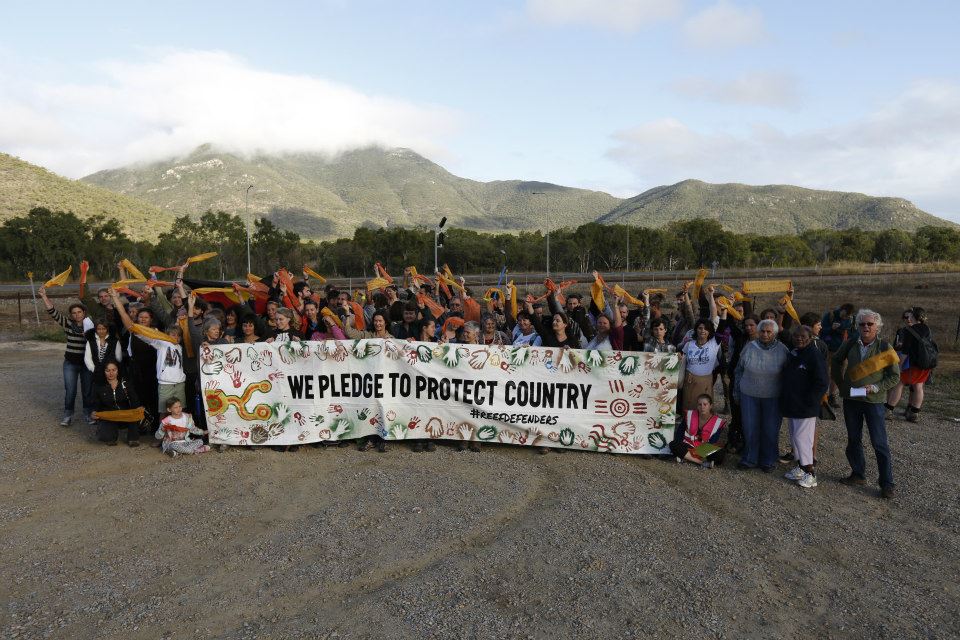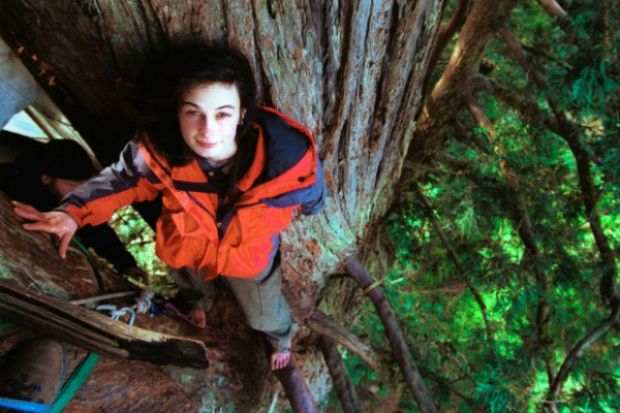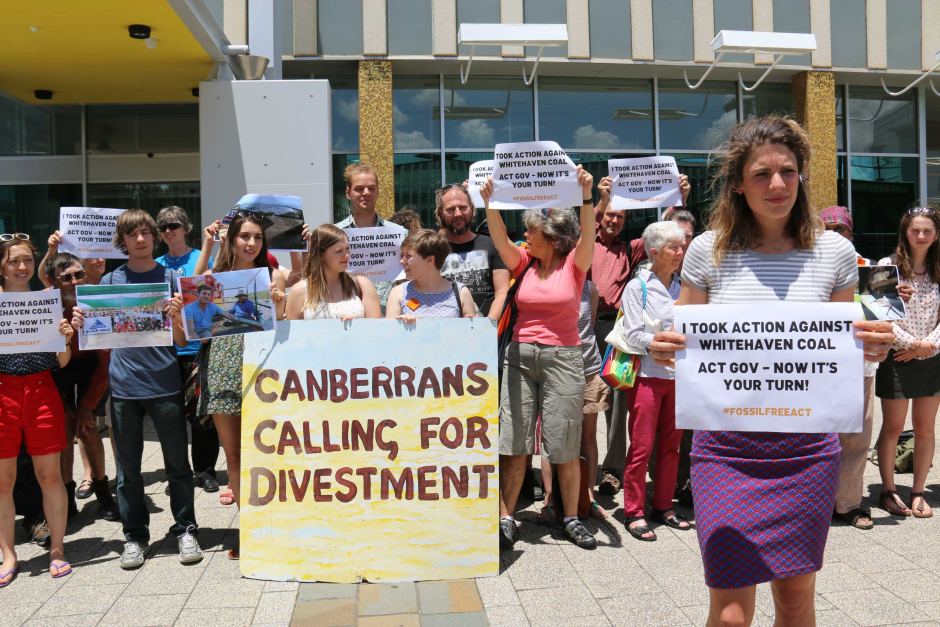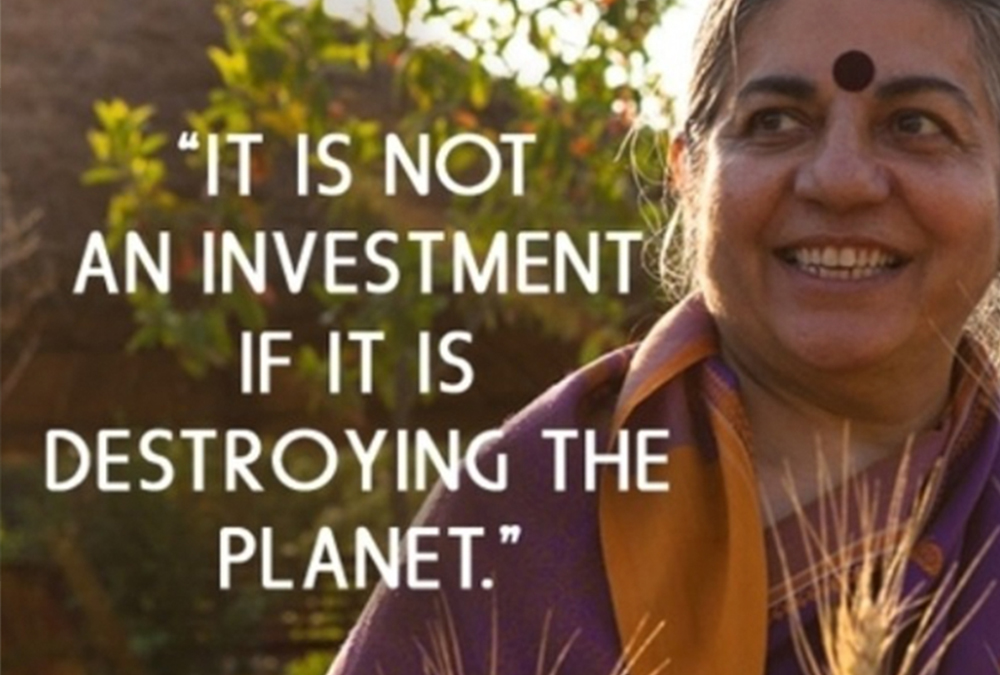Can you cut 1 Tonne of carbon pollution out of your life?
Take the challengeAt a time when increasing numbers of people are demonstrating a lack of trust in government leaders and their ability to represent constituent interests, civil disobedience is appearing in the most unlikely of places.
As issues such as mining, not just in Australia, but in countries such as the US and Canada, place people at odds with big business and our elected leaders, we may see more and more of such actions.

But what is civil disobedience and what can it hope to achieve?
Civil disobedience can be interpreted in different ways, but most broadly, it is the refusal to obey a law - or laws - and is characterised by non-violence or noncooperation.
We owe the term to Henry David Thoreau who published his essay Resistance to Civil Government in 1849. He was compelled to explore a philosophy of civil disobedience within the essay by a horror at the institution of slavery in the US. If something such as slavery is entrenched in law, he asked, is obeying law the right thing to do? He challenged the idea that the only means to be heard was to vote accordingly. But what if the government itself is implicit in slavery? Voting, for Thoreau, was like waiting around, and hoping, for someone else to do something rather than taking action yourself.
He wrote:
'If the injustice is part of the necessary friction of the machine of government, let it go, let it go: perchance it will wear smooth—certainly the machine will wear out. If the injustice has a spring, or a pulley, or a rope, or a crank, exclusively for itself, then perhaps you may consider whether the remedy will not be worse than the evil; but if it is of such a nature that it requires you to be the agent of injustice to another, then I say, break the law. Let your life be a counter-friction to stop the machine. What I have to do is to see, at any rate, that I do not lend myself to the wrong which I condemn' (On the Duty of Civil Disobedience, available here).
Indeed, Thoreau spent time in jail for refusing to pay a tax that he recognised as funding slavery. Civil disobedience, though, is most commonly associated with Mahatma Gandhi and his concept of satyagraha, the practice of nonviolent resistance and campaigning that he developed for civil rights in South Africa and then India. He would inspire whole movements throughout the world, and to this day principles of satyagraha continue to be employed.

Civil disobedience, then, can be both protest, in the sense of raising the profile of an issue to the broader public, and a form of direct action, such as by preventing something from taking place. The latter is best illustrated by activists who have chained themselves to mining equipment, thereby temporarily shutting down mining operations – an elegant echo of Thoreau's metaphor of stalling machinery.
Anthropologist David Graeber has written of more recent forms of civil disobedience, of a 'new language…combining elements of street theatre, festival and what can only be called non-violent warfare.' These include protest lines of fairies, the Pink Bloc, who tickle police with feather dusters, and guerilla knitting wrapped around street posts as blockades. Such forms, he argues, challenge the very structures of power by refusing to play by the rules. Can you really be arrested for tickling a police officer?
Would you put yourself in such a position for something you believe is of critical importance? Sometimes people find it's the last option left. Such acts are a cause for great hope and as history shows us, hold the ability to bring government into dialogue, and effect real change.
Here are just a few examples of women who have engaged in important acts of civil disobedience for the environment:
Julia Butterfly Hill
At just 26 years of age, Julia Butterfly Hill climbed an ancient Redwood tree she had named Luna, and stayed there for 738 days in order to protest logging. She successfully managed to save the tree after negotiations to come down. You can read more in her book The Legacy of Luna: The Story of a Tree, a Woman, and the Struggle to Save the Redwoods, and on her website here.

The Kupa Piti Kungka Tjuta
The Kupa Piti Kungka Tjuta are a group of Aboriginal women elders from Coober Pedy, South Australia, who protested planned nuclear waste dumping on their lands. After years of campaigning, they were successful and the plans were cancelled. In 2003 they won the Goldman Prize for environmental activism. On their website they write:
'We are the women who are fighting to keep the culture going. We've been teaching the younger women and the womens that were taken away teaching the people that lost the culture. We've been travelling everywhere.'
'We really know the land. We were born on the manta, born on the earth. And never mind our country is in the desert, that's where we belong, in the beautiful desert country.'
Emma Pocock
Along with her husband, rugby star David Pocock, Emma Pocock took part in a mining blockade at Maules Creek in the Leard Forest, NSW, and was arrested after ten hours chained to a digger.
She writes 'my protest is fundamentally about my role as a citizen, about my commitment to engage with and love the world around me.' You can read more about her courageous decision to take part, in her own words here.
(Image: ABC News: Elise Pianegonda)

Audrey Siegel
Audrey Siegel is a Musqueam Nation woman in Canada, who has been protesting oil drilling in the arctic, most recently by blocking a Shell oil rig in an inflatable dingy.
She writes, 'It was terrifying. But there are moments in life when—despite your fear—you must act.'
(Image and Header Image: Common Dreams)

SOS Liverpool Plains
SOS Liverpool Plains is a group that represents country and city women from all walks of life.
'Our mission is to raise awareness of the real effects of coal and coal seam gas mining on the people, the communities, the land, the air, the workers and surrounding developments and most importantly OUR WATER – both riverine and underground. We raise to light the facts and let the people decide. We aim to reinvigorate democracy and keep the Federal and State Governments accountable.'
Dr. Vandana Shiva
Inspired by Gandhi, Vandana Shiva regularly calls for acts of civil disobedience against corporate control of the natural world, and the injustices committed against the people who depend directly on agriculture in order to live. When some companies, who are forcing farmers to buy their genetically modified seed, refer to seed saving as a crime, she calls on farmers to do just that, and therefore engage in civil disobedience. Read more here.

READ THIS NEXT: Women at the forefront of brave local communities standing up to coal seam gas

